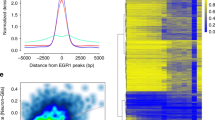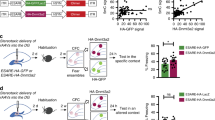Abstract
Memory formation and storage require long-lasting changes in memory-related neuronal circuits. Recent evidence indicates that DNA methylation may serve as a contributing mechanism in memory formation and storage. These emerging findings suggest a role for an epigenetic mechanism in learning and long-term memory maintenance and raise apparent conundrums and questions. For example, it is unclear how DNA methylation might be reversed during the formation of a memory, how changes in DNA methylation alter neuronal function to promote memory formation, and how DNA methylation patterns differ between neuronal structures to enable both consolidation and storage of memories. Here we evaluate the existing evidence supporting a role for DNA methylation in memory, discuss how DNA methylation may affect genetic and neuronal function to contribute to behavior, propose several future directions for the emerging subfield of neuroepigenetics, and begin to address some of the broader implications of this work.
This is a preview of subscription content, access via your institution
Access options
Subscribe to this journal
Receive 12 print issues and online access
$209.00 per year
only $17.42 per issue
Buy this article
- Purchase on Springer Link
- Instant access to full article PDF
Prices may be subject to local taxes which are calculated during checkout



Similar content being viewed by others
References
Mammen, A.L., Huganir, R.L. & O'Brien, R.J. Redistribution and stabilization of cell surface glutamate receptors during synapse formation. J. Neurosci. 17, 7351–7358 (1997).
Crick, F. Memory and molecular turnover. Nature 312, 101 (1984).
Holliday, R. Is there an epigenetic component in long-term memory? J. Theor. Biol. 200, 339–341 (1999).
Lisman, J.E. A mechanism for memory storage insensitive to molecular turnover: a bistable autophosphorylating kinase. Proc. Natl. Acad. Sci. USA 82, 3055–3057 (1985).
Razin, A. & Friedman, J. DNA methylation and its possible biological roles. Prog. Nucleic Acid Res. Mol. Biol. 25, 33–52 (1981).
Roberson, E.D. & Sweatt, J.D. Memory-forming chemical reactions. Rev. Neurosci. 12, 41–50 (2001).
Holliday, R. & Pugh, J.E. DNA modification mechanisms and gene activity during development. Science 187, 226–232 (1975).
Klose, R.J. & Bird, A.P. Genomic DNA methylation: the mark and its mediators. Trends Biochem. Sci. 31, 89–97 (2006).
Wolffe, A.P., Jones, P.L. & Wade, P.A. DNA demethylation. Proc. Natl. Acad. Sci. USA 96, 5894–5896 (1999).
Ma, D.K., Guo, J.U., Ming, G.L. & Song, H. DNA excision repair proteins and Gadd45 as molecular players for active DNA demethylation. Cell Cycle 8, 1526–1531 (2009).
Santos, K.F., Mazzola, T.N. & Carvalho, H.F. The prima donna of epigenetics: the regulation of gene expression by DNA methylation. Braz. J. Med. Biol. Res. 38, 1531–1541 (2005).
Lubin, F.D., Roth, T.L. & Sweatt, J.D. Epigenetic regulation of BDNF gene transcription in the consolidation of fear memory. J. Neurosci. 28, 10576–10586 (2008).
Miller, C.A. & Sweatt, J.D. Covalent modification of DNA regulates memory formation. Neuron 53, 857–869 (2007).
Morris, R.G., Garrud, P., Rawlins, J.N. & O'Keefe, J. Place navigation impaired in rats with hippocampal lesions. Nature 297, 681–683 (1982).
Squire, L.R. Mechanisms of memory. Science 232, 1612–1619 (1986).
Levenson, J.M. et al. Evidence that DNA (cytosine-5) methyltransferase regulates synaptic plasticity in the hippocampus. J. Biol. Chem. 281, 15763–15773 (2006).
Feng, J. et al. Dnmt1 and Dnmt3a maintain DNA methylation and regulate synaptic function in adult forebrain neurons. Nat. Neurosci. 13, 423–430 (2010).
Miller, C.A., Campbell, S.L. & Sweatt, J.D. DNA methylation and histone acetylation work in concert to regulate memory formation and synaptic plasticity. Neurobiol. Learn. Mem. 89, 599–603 (2008).
Miller, C.A. et al. Cortical DNA methylation maintains remote memory. Nat. Neurosci. 13, 664–666 (2010).
Barrett, R.M. & Wood, M.A. Beyond transcription factors: the role of chromatin modifying enzymes in regulating transcription required for memory. Learn. Mem. 15, 460–467 (2008).
Gräff, J. & Mansuy, I.M. Epigenetic codes in cognition and behaviour. Behav. Brain Res. 192, 70–87 (2008).
Lubin, F.D. & Sweatt, J.D. The IkappaB kinase regulates chromatin structure during reconsolidation of conditioned fear memories. Neuron 55, 942–957 (2007).
Swank, M.W. & Sweatt, J.D. Increased histone acetyltransferase and lysine acetyltransferase activity and biphasic activation of the ERK/RSK cascade in insular cortex during novel taste learning. J. Neurosci. 21, 3383–3391 (2001).
Wood, M.A., Hawk, J.D. & Abel, T. Combinatorial chromatin modifications and memory storage: a code for memory? Learn. Mem. 13, 241–244 (2006).
Dulac, C. Brain function and chromatin plasticity. Nature 465, 728–735 (2010).
Gehring, M., Reik, W. & Henikoff, S. DNA demethylation by DNA repair. Trends Genet. 25, 82–90 (2009).
Niehrs, C. Active DNA demethylation and DNA repair. Differentiation 77, 1–11 (2009).
Kangaspeska, S. et al. Transient cyclical methylation of promoter DNA. Nature 452, 112–115 (2008).
Métivier, R. et al. Cyclical DNA methylation of a transcriptionally active promoter. Nature 452, 45–50 (2008).
Ma, D.K. et al. Neuronal activity-induced Gadd45b promotes epigenetic DNA demethylation and adult neurogenesis. Science 323, 1074–1077 (2009).
Barreto, G. et al. Gadd45a promotes epigenetic gene activation by repair-mediated DNA demethylation. Nature 445, 671–675 (2007).
Jin, S.G., Guo, C. & Pfeifer, G.P. GADD45A does not promote DNA demethylation. PLoS Genet. 4, e1000013 (2008).
Szyf, M. Epigenetics, DNA methylation and chromatin modifying drugs. Annu. Rev. Pharmacol. Toxicol. 49, 243–263 (2009).
Roth, T.L., Lubin, F.D., Funk, A.J. & Sweatt, J.D. Lasting epigenetic influence of early-life adversity on the BDNF gene. Biol. Psychiatry 65, 760–769 (2009).
Weaver, I.C. et al. Epigenetic programming by maternal behavior. Nat. Neurosci. 7, 847–854 (2004).
Weaver, I.C. et al. Reversal of maternal programming of stress responses in adult offspring through methyl supplementation: altering epigenetic marking later in life. J. Neurosci. 25, 11045–11054 (2005).
Bird, A. Perceptions of epigenetics. Nature 447, 396–398 (2007).
Sananbenesi, F. & Fischer, A. The epigenetic bottleneck of neurodegenerative and psychiatric diseases. Biol. Chem. 390, 1145–1153 (2009).
Wu, H. et al. Dnmt3a-dependent nonpromoter DNA methylation facilitates transcription of neurogenic genes. Science 329, 444–448 (2010).
Zhao, X. et al. Mice lacking methyl-CpG binding protein 1 have deficits in adult neurogenesis and hippocampal function. Proc. Natl. Acad. Sci. USA 100, 6777–6782 (2003).
Brown, S.E., Weaver, I.C., Meaney, M.J. & Szyf, M. Regional-specific global cytosine methylation and DNA methyltransferase expression in the adult rat hippocampus. Neurosci. Lett. 440, 49–53 (2008).
Ooi, S.K. & Bestor, T.H. The colorful history of active DNA demethylation. Cell 133, 1145–1148 (2008).
Kriaucionis, S. & Heintz, N. The nuclear DNA base 5-hydroxymethylcytosine is present in Purkinje neurons and the brain. Science 324, 929–930 (2009).
Tahiliani, M. et al. Conversion of 5-methylcytosine to 5-hydroxymethylcytosine in mammalian DNA by MLL partner TET1. Science 324, 930–935 (2009).
Valinluck, V. et al. Oxidative damage to methyl-CpG sequences inhibits the binding of the methyl-CpG binding domain (MBD) of methyl-CpG binding protein 2 (MeCP2). Nucleic Acids Res. 32, 4100–4108 (2004).
Zhang, Y. et al. Chromatin methylation activity of Dnmt3a and Dnmt3a/3L is guided by interaction of the ADD domain with the histone H3 tail. Nucleic Acids Res. 38, 4246–4253 (2010).
Thomson, J.P. et al. CpG islands influence chromatin structure via the CpG-binding protein Cfp1. Nature 464, 1082–1086 (2010).
Chahrour, M. et al. MeCP2, a key contributor to neurological disease, activates and represses transcription. Science 320, 1224–1229 (2008).
Suzuki, M.M. & Bird, A. DNA methylation landscapes: provocative insights from epigenomics. Nat. Rev. Genet. 9, 465–476 (2008).
Martinowich, K. et al. DNA methylation-related chromatin remodeling in activity-dependent BDNF gene regulation. Science 302, 890–893 (2003).
Author information
Authors and Affiliations
Corresponding author
Ethics declarations
Competing interests
The authors declare no competing financial interests.
Rights and permissions
About this article
Cite this article
Day, J., Sweatt, J. DNA methylation and memory formation. Nat Neurosci 13, 1319–1323 (2010). https://doi.org/10.1038/nn.2666
Published:
Issue Date:
DOI: https://doi.org/10.1038/nn.2666
This article is cited by
-
Suv39h1 Silencing Recovers Memory Decline in Scopolamine-Induced Amnesic Mouse Model
Molecular Neurobiology (2024)
-
Purified regenerating retinal neurons reveal regulatory role of DNA methylation-mediated Na+/K+-ATPase in murine axon regeneration
Communications Biology (2023)
-
Molecular mechanisms of transgenerational epigenetic inheritance
Nature Reviews Genetics (2022)
-
Epigenetic genes and epilepsy — emerging mechanisms and clinical applications
Nature Reviews Neurology (2022)
-
Construction of a Review About Epigenetics for Biology Teachers and Other Non-experts
Science & Education (2022)



